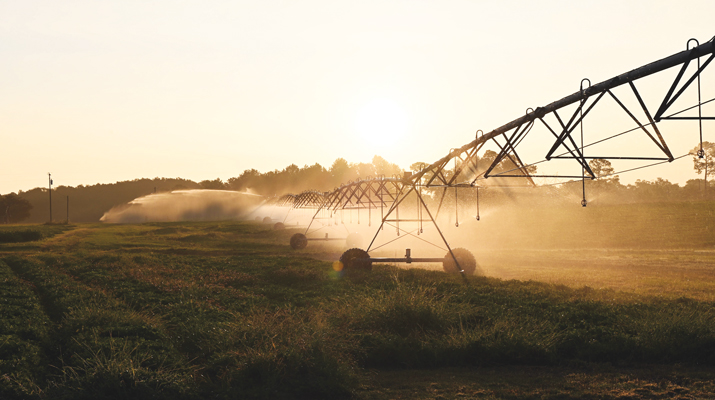A need for speed
Blue Rhino has established itself as the industry’s leader in cylinder exchange, and the new state-of-the-art automated tank facility it built with Manchester Tank and Equipment Co. is ensuring it remains that way.
 The R4 Technical Center, in Hamptonville, N.C., opened last April with hopes that it would help speed the return of filled 20-pound cylinders to retail centers, where consumers can retrieve propane tanks for their barbecues or recreational vehicles.
The R4 Technical Center, in Hamptonville, N.C., opened last April with hopes that it would help speed the return of filled 20-pound cylinders to retail centers, where consumers can retrieve propane tanks for their barbecues or recreational vehicles.
Nearly a year later, the center is amazing its owners with its speed, accuracy, consistency and quality of product.
What used to be a painstaking, manual process of evaluating and refurbishing several hundred tanks each day — purging air, fixing valves or painting cylinders before filling them and checking for leaks — now seems quite antiquated. At the R4, nearly 10,000 cylinders are processed and returned to service each day.
“When Blue Rhino first started, if you could do 350 or 400 cylinders a day, you were doing pretty good,” reflects David Slone, president of the R4 Technical Center and vice president of technology and standards for Blue Rhino. “We’re just ecstatic.”
Forgive Slone if he is prone to speaking in superlatives, but the numbers bear him out. In mid-April, the facility expects to process its 1 millionth cylinder.
The plant has taken over the work for 10 distributors who otherwise would have had to provide a facility, equipment and personnel to process a fraction of those tanks. Three shifts a day at the 17-acre site crank out tanks through the week, and getting those tanks back in cages where they can be purchased is the name of the game. The faster tanks are available, the faster they can be sold. More than 3.7 million gallons of propane were pumped into those tanks in the first nine months of operation.
“I’m exceedingly pleased,” Slone says.
The $6 million R4 Technical Center (named for Regional, Re-certification, Refilling and Refurbishment) was created under a 50-50 partnership with Manchester Tank. Billy D. Prim, chairman and chief executive officer of Blue Rhino, praised the “good teamwork” of the “great relationship” between the companies. Although McWane Inc. recently acquired Manchester Tank, the companies are committed to investments in the R4 plant, Prim said.
Bob Richard, Manchester Tank president, was out of the country and was unavailable for comment. The plant was conceived and developed after numerous trips to view similar facilities in Europe, where the technology has been in place about 10 years. While Blue Rhino drove the cylinder exchange business nationally when it was founded in 1994, Europeans had relied on the simplicity of cylinder exchange for much longer. There, many Europeans depend on similarly sized propane cylinders for cabinet heaters, a type of indoor, portable room heater, Prim explains.
 Some of these automated services were developed and used in small scale in the United
Some of these automated services were developed and used in small scale in the United
States. But until Blue Rhino charged into the national market, few businesses used enough cylinders to make the investment of a totally automated facility worthwhile. Even today, Prim predicts few other companies do enough in the market to want to follow suit and make similar investments.
After all, few companies glimpse the kind of growth Blue Rhino has experienced. Revenues in fiscal year 1999, for example, reached $53.8 million – after only five years in business – demonstrating a 93 percent growth from the previous year. Cylinder transactions for that year exceeded the combined figures for the two previous years, and now tops 6 million, according to Prim.
As remarkable as that is, however, the company expects fiscal year 2000 to more than double the previous year’s revenues. Corporate predictions put revenues in the $115 million to $125 million range, with another 25 to 35 percent increase the following year. The fiscal year ends July 31.
The number of retail locations with Blue Rhino displays also grows exponentially each year, recently topping 26,000 by Oct. 31, 2000 – up from 9,500 in 1998. Such rapid growth punctuates the need for a facility that can accelerate productivity.
“I think as we continue to pioneer and evolve in this industry, you’ll see more (automation),” Prim says. “I don’t think anyone else is at a level now to have a need for this type of facility.”
The plant is engineered to allow tanks to come in on power conveyers, where there is electronic sorting by need – do tanks need new valves or do they only need to be washed and filled?
The cylinders on the conveyor then stop at various work stations, where their needs are met by one person sitting at a console. Later, cylinders are automatically filled and weighed on electronic weigh scales, with secondary quality control scales ensuring accuracy.
“It’s very, very accurate, with very close tolerances,” Slone says. “Whereas people can make mistakes due to strain, boredom or distractions, machines are very, very consistent.”
 Pieces of the system were in place elsewhere in the United States, but Slone says the R4 is the first facility to put it all together and put theory into practice. He says he’s pleased that the plans turned out to be more than 80 percent accurate, although additional tinkering will take place as the plant approaches its first anniversary. The real test, he says, will be this summer, when demand for gas grill fuel will peak and require the type of fast turn-around the R4 was designed to handle.
Pieces of the system were in place elsewhere in the United States, but Slone says the R4 is the first facility to put it all together and put theory into practice. He says he’s pleased that the plans turned out to be more than 80 percent accurate, although additional tinkering will take place as the plant approaches its first anniversary. The real test, he says, will be this summer, when demand for gas grill fuel will peak and require the type of fast turn-around the R4 was designed to handle.
Some of those changes will include adding more bulk storage for propane, installing a bigger filling facility, and upgrading painting and washing systems.
In addition, the company is hoping to open another automated center to serve the cylinder exchange needs beyond the 400- to 500-mile radius now served by the R4 center. Slone says he has looked at two properties on the West Coast; what he picks depends on the final layout of the plant, which only trial-and-error experience can determine.
“I’m ecstatic that we hit the target so accurately when we first opened,” Slone says.
















